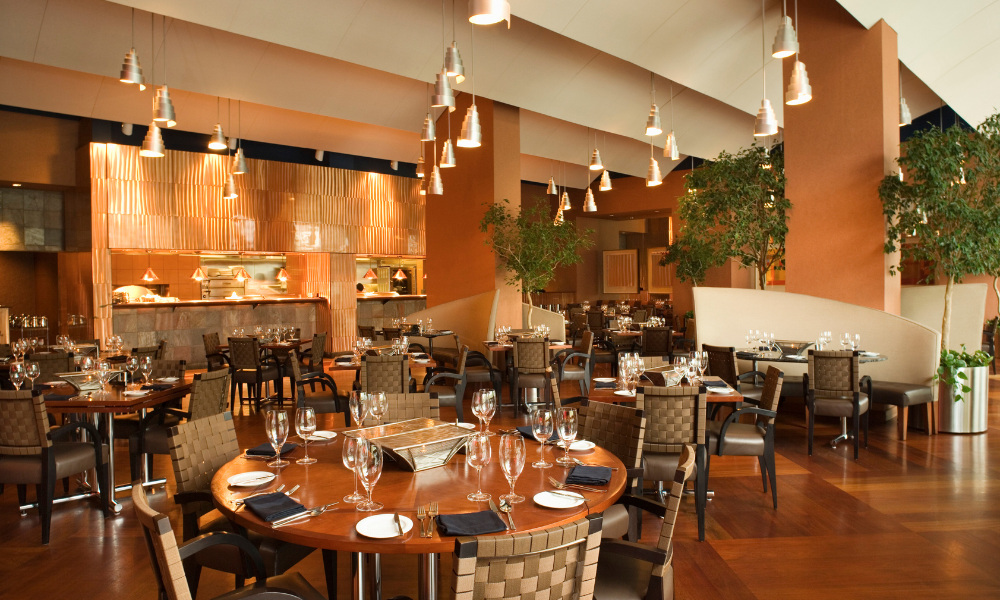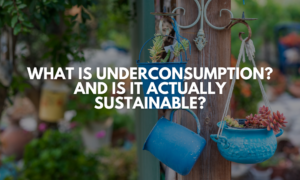The restaurant industry is at the heart of every community, serving up delicious dishes and memorable dining experiences. But behind the scenes, restaurants also have a significant environmental footprint. From food waste to energy consumption, there’s a lot that can be done to create a more eco-friendly dining experience.
Today’s customers are more environmentally conscious than ever, with many actively seeking out restaurants that share their values. According to Nation’s Restaurant News, 90% of consumers will choose a restaurant based on their commitment to sustainability, and 10% are willing to pay more for sustainable options.
Sustainability clearly matters to consumers, so how can restaurants step up to the plate? Let’s explore some impactful eco-friendly alternatives to help your business create a greener future.
1. Eco-Friendly Hiring and Training Practices
Your sustainability efforts should start from within. By implementing greener hiring and training practices, you can reduce waste and inspire your team to embrace eco-friendly habits. Here are a few ideas:
- Digital Onboarding: Switch to digital onboarding and training materials to reduce paper waste.
- Virtual Interviews: Conduct interviews online to minimize the carbon emissions from commuting.
- Sustainability Teams: Build a team or assign roles to focus on incorporating sustainable practices into daily operations.
- Staff Training: Train employees on everything from energy conservation to food waste reduction, helping them see how small changes add up.
- Green Commuting: Encourage employees to carpool, bike, or use public transportation to reduce their commuting footprint.
- Internal Incentives: Create challenges or reward systems to encourage staff to brainstorm and implement eco-friendly ideas.
2. Sustainable Menu Practices
The ingredients on your menu can tell a story, and diners are increasingly drawn to meals that reflect sustainable practices.
- Source Locally: Use locally grown, organic, and seasonal ingredients to reduce transportation emissions and support local farmers.
- Plant-Based Options: Incorporate plant-based dishes into your regular menu to appeal to eco-conscious diners.
- Reduce Food Waste: Implement farm-to-table practices to minimize waste, or donate excess food to local charities and food banks.
3. Energy and Water Efficiency
Running a restaurant requires significant energy and water use, but there are several ways to minimize waste:
- Energy-Efficient Equipment: Upgrade to energy-efficient ovens, refrigerators, and dishwashers to cut down on energy consumption.
- LED Lighting: Replace traditional bulbs with long-lasting, energy-saving LED lighting throughout your restaurant.
- Water-Saving Features: Install faucets, toilets, and dishwashing stations with water-saving aerators.
- Natural Ventilation: Open doors and windows on nice days to reduce air conditioning or heating usage.
- Nighttime Shutoff: Turn off POS systems and other electronics every night to avoid phantom energy use.
4. Waste Reduction
Minimizing waste is critical for any sustainability initiative. Restaurants can adopt simple swaps to make a significant impact:
- Ditch Single-Use Plastics: Replace disposable utensils, straws, and containers with compostable or reusable options.
- Reusable Incentives: Offer discounts or perks to customers who bring their own reusable containers, mugs, or straws.
- Composting Programs: Partner with local composting organizations to manage food scraps and organic waste.
- Recycling Partnerships: Work with local recycling programs to ensure packaging waste is properly processed.
5. Sustainable Dining Practices
Elevate your dining experience with sustainability in mind:
- Reusable Tableware: Swap disposable plates and cups for reusable, durable options.
- Digital Menus: Offer digital menus via QR codes to save paper and printing costs.
- Customer Engagement: Educate your diners about your sustainability initiatives with signage, menu notes, or social media updates to encourage their involvement.
6. Switch to Green Cleaning Products
A clean restaurant doesn’t have to come at the expense of the environment. Make the switch to greener cleaning solutions:
- Reusable Towels: Replace disposable paper towels with washable, reusable cloth towels.
- Eco-Friendly Products: Use cleaning products made from sustainable, non-toxic materials to reduce waste and chemical impact.
Conclusion
These are just the basics of adopting sustainable strategies for restaurants, but even small changes can have a big impact. Sustainability isn’t just about saving the planet—it’s about building a better future for your business, your customers, and your community.
For more resources on eco-friendly practices, check out EnviroStaff’s other tips. If you’re looking for talented environmental professionals to join your team, contact EnviroStaff today to get started!
Check out more of EnviroStaff’s eco-friendly tips!
Never miss an update when you follow our social media!
About EnviroStaff
EnviroStaff is a division of LGC that focuses on making placements in the environmental industry. We build partnerships with clients to fill open positions on their team and have recruiting capabilities within multiple markets throughout the U.S. Working closely together, EnviroStaff will recruit environmental industry professionals based on your job description and requirements. By making direct hire placements, EnviroStaff can help clients save time and money often associated with recruiting.




